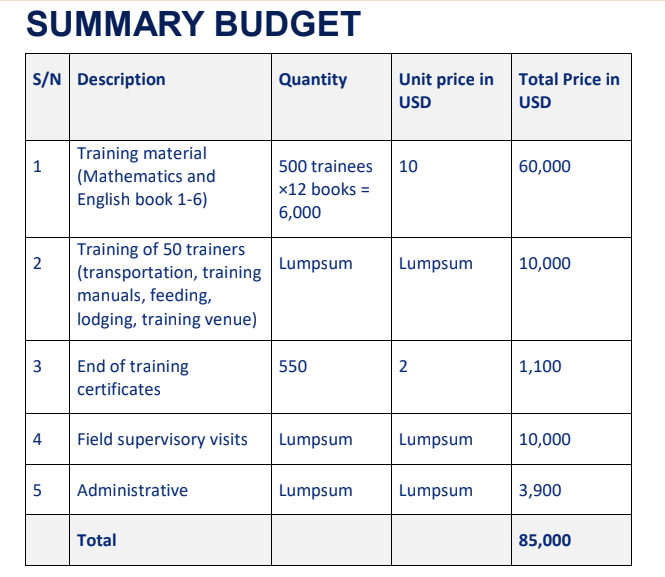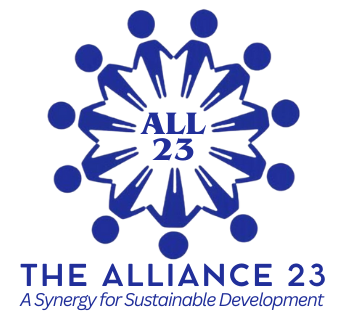THE CBC ADULT LITERACY PROGRAM
Empowering 500 Non-Literate Adults with Basic Skills in Literacy and Numeracy
to Achieve Personal, Educational, and Employment Goals
PROJECT BACKGROUND
Education is a fundamental human right for everyone and is the foundation of human and societal development. Education also promotes individual well being and personal development. It also transforms lives and communities Furthermore, education opens doors to careers, healthcare access, and participation in equality. Literateness leads to equal opportunities, liberties, and protection under the law, it helps create financial stability for individuals and their communities and inspires the next generation to learn and grow.
According to Country Meter, over 4 million adults (15 years and above) are
illiterate in Cameroon. The data above is an indicator that there is still a high illiteracy rate in Cameroon and there is a great need for adult literacy programs in churches and communities in Cameroon. The focus of this project is to enable adults to become more confident and capable of meeting their highest potential, as well as to prepare them for other situations that may require them to use their reading, writing, and numeracy skills.
PROJECT DETAILS
General Objective: The general objective of this project is to help adults
acquire the basic skills in reading, writing, mathematics, English language
proficiency, and problem-solving to be productive Christian workers, family
members, and citizens. It will assist adults in addressing personal, educational,
or employment goals by increasing their basic literacy and numeracy skills.
Specific Objectives: The general objective of the project shall be achieved
through the following specific objective:
- Train literacy facilitators in churches to start literacy program in their localities
- Provides a literacy package for trainees (Mathematics and English lessons level 1-6) and Certification
- Carryout biannual field supervision and evaluations visits
- Document project progress, write biannual reports and disseminate with project stakeholders and funders
Target Area And Beneficiaries
This project targets 500 adults from age 18 to 50. The beneficiaries will be vulnerable population hail from economically weaker sector of the society both from urban and rural areas.
Duration
The duration of this project is 36 months
Approach
The project will integrate the following learning approaches to enhance
learning outcomes:
– Active Learning, in the course of the training learners would engage in
the learning process by encouraging critical thinking and real-world
application, students stay alert and retain more knowledge. Activities
are such as role-playing exercises, and group projects which are great
active learning methods. This method will not only learners on their
toes, but would also create a fun and collaborative learning environment
that everyone will enjoy.
– Experiential Learning the training trainees will be directed to put the
knowledge acquired into practice. This method is very good because it
improves retention rates and increase engagement, making it a
desirable approach for trainers in continuing vocational education and
training looking to engage their learners.
– Self-Directed Learning: Trainees will be thought on how to help student
set personal goals, create learning plans, and reflect on outcomes,
students will take ownership of their progress and achieve their full
potential. Which this will be achieve by equipping students with the right
tools. Self-assessment tools, goal-setting exercises, and reflective writing
prompts etc.
Monitoring & Evaluation
Monitoring and Evaluation will be integrated into the project planning and management to collect the reliable time series data needed to assess the project’s progress. Progress reports of learners shall be maintained and
updated every month for progress monitoring. The reports will be used to evaluate how well the program has meeting its proposed objectives.
Evaluation will be conducted to assess the project during implementation to provide information about how best to revise and modify the program material for improvement. Follow-up, offering interactive quizzes or assessments, coaching and supervision will be done throughout the project duration.
Summative evaluation will be conducted at the end of the project to assess the
impact of the project in the lives of the adult who received the training.
Sustainability
The project activities will be sustained by continuous solicitation of funds by from within and without the CBC. The project may later incorporate some cost-
contribution from the part of the beneficiaries.

